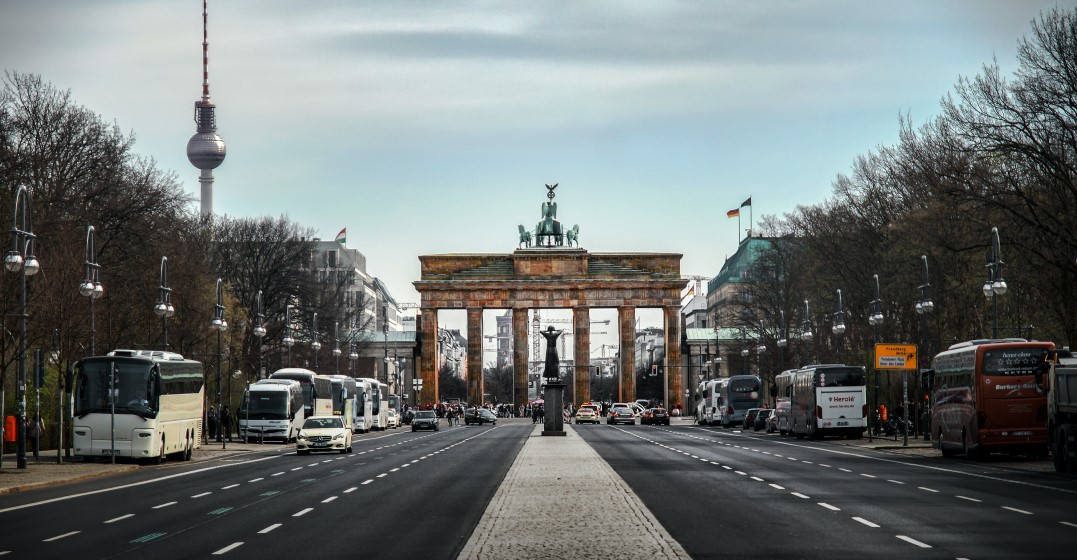Updated on January 9, 2024

What is the level of German needed for a visa in Germany?

There are many reasons people travel to Germany: for work, study, language courses, family, tourism, or to seek refuge. Accordingly, there are a variety of visas you may need to apply for if you are not a citizen of the EU or of a country that has no visa-free travel agreement with the Schengen area. It can be hard to guess which visa is the appropriate one for your needs, and what language requirements each visa may have, so we put together a handy breakdown of the various German visa types, what their purposes are, and the language requirements that may come with them.
If you plan to visit Germany or the EU for travel and pleasure you should apply for a Schengen short-stay tourist visa. This will allow you to move freely within the Schengen area for at most 90 days within a 6-month period. A list of countries whose citizens need a Schengen short-stay visa can be found here. There are no language requirements for tourist visas (though of course some knowledge of German will be helpful on your holiday).
If you wish to pursue career opportunities in Germany you have a few different options. Germany’s working or employment visa is the appropriate visa to apply for if you already have a job offer in Germany through which your employer will sponsor your visa or are being transferred within an international corporation to work in Germany. If you are a highly qualified worker with a contract or job offer in your field, you may wish to consider applying for the EU blue card. This work and residence permit requires your job offer to provide a high minimum salary but provides some benefits such as eased requirements for family reunification.
You may also apply for a visa as a self-employed person if you wish to work as a freelancer or establish a business in Germany. It is also possible to apply for a short-term six-month visa as a jobseeker, however, you will need to prove that you are a highly qualified professional whose skills will benefit the German economy. You will also need a minimum Common European Framework of Reference (CEFR) level B1 German to obtain a job-seeker’s visa in Germany. For work and freelance visas, there is generally no designated German language requirement. However, without German language knowledge, your business may not be deemed sound, resulting in your freelance visa application being rejected.
A German business visa is similar to a tourist visa in that it is a short-stay Schengen visa, permitting you to stay for a maximum of 90 days within a 6-month period. This is the appropriate visa to apply for if you travel to Germany for business purposes such as attending meetings, negotiations, trade fairs, or signing contracts. There are no language requirements for acquiring a business visa for Germany.
Students who have been accepted into recognized degree programs at German universities and third-level institutes may acquire a long-term German student visa. There are also shorter-term language acquisition visas available which are appropriate for German language courses lasting for the duration of the language course and up to one year. Scientists or researchers who have been invited by a German institution to carry out study or research or to deliver lectures must apply for a Visa for Guest Scientists & Researchers.
While there is no specified German language requirement for a student visa or research visa, in order to gain acceptance on many German courses you will require the minimum level of German prescribed by the institution. If the course is taught in English you’ll need a certificate of proficiency in English.
If you wish to join a spouse in Germany who is a German citizen or who holds a valid residence permit you will need to apply for a visa for family reunification. In your application, you are required to include an authenticated marriage certificate. Minors are also, in principle, allowed to accompany their guardians to Germany under a family reunion visa.
Keep in mind, if you’’re seeking a German visa to join your spouse you’ll need to prove a sufficient enough level of German to handle basic everyday interactions. Children over the age of 16 who are joining a parent or guardian will need to attain considerably higher proficiency so they can successfully integrate into German education and society.
Beyond the visas listed here, there are several other visas available. For instance, you may need a German Transit Visa if you enter a German harbor or a German Airport Transit Visa if you must land at a German airport en route to a non-Schengen destination. If you require a visa for a purpose not listed above, check out the German government’s Visa Navigator or consult the German embassy or Chamber of Industry and Commerce in your home country.
As you can see, there are many different visa options for Germany. No matter what your purpose of travel to Germany is, we hope this guide will take you a bit closer to getting hold of a much-coveted German visa! And don’t forget to apply early at the German Embassy or Consulate in your country as it could take quite some time to process your application and receive your visa.